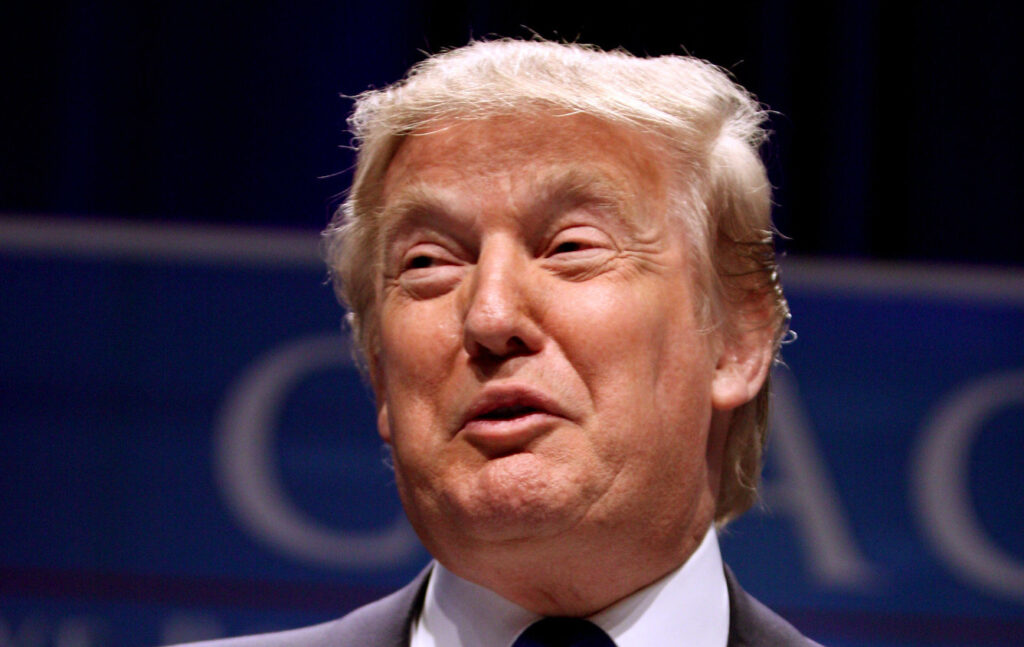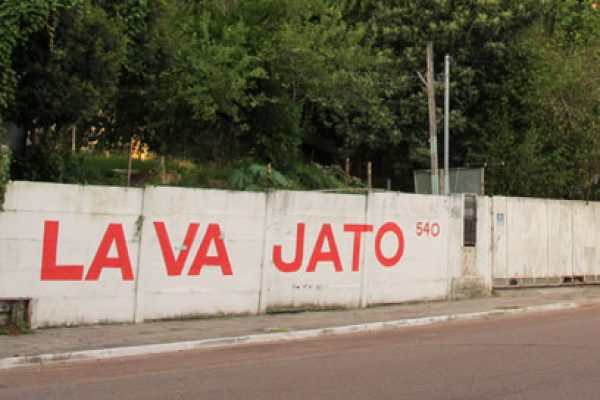As dramas go, this one was devoid of suspense. The Senate trial of President Donald Trump always had a foregone conclusion. This inevitability did not hinge on the strength of the evidence against the president, nor did it turn on his political allies’ successful prevention of formal consideration of evidence. Certainty was, rather, hardwired.
Nonetheless the trial raises difficult—and pressing—questions. Is it possible to do better? Do impeachment proceedings inevitably collapse into exercises in raw politics? And who is to blame this time?
Do impeachment proceedings inevitably collapse into exercises in raw politics? Is it possible to do better?
If, like us, you are reasonably confident in the damning evidence against the president and agree that the Constitution does not require a statutory criminal act for impeachment, there is a facile answer to this last question: Senate Republicans are at fault for derailing a credible process. One might also look past their particular voting behavior and blame the “all-time record” support for Trump among the Republican rank and file.
Either way, though, this diagnosis misses an important part of the story: the political legitimacy of impeachment trials can prevail only when the institutional design allows it. The failure of a meaningful probe of the president’s actions reflects not so much the unusual circumstances of the Trump presidency as a more profound deficiency in our institutions.
The problem crystallized in the Trump impeachment process is not the intrusion of politics into a proceeding characterized by “due process” or defined by the Bill of Rights. Rather, the problem is our lack of non-democratic institutions that can mediate inevitable conflicts between partisan motives and legal protections in investigations of presidential wrongdoing. Partisan rancor rules. As Gerald Ford famously quipped, an impeachable offense is “whatever a majority of the House of Representatives considers it to be at a given moment.”
The political legitimacy of impeachment trials can prevail only when the institutional design allows it.
Impeachment is globally understood as a necessary safeguard against the abuse of presidential power, and many constitutions understand the importance of getting this right. Some 90 percent of democratic constitutions contain provisions—beyond electoral defeat or term limits—for removing a chief executive. Our recent study of almost 200 other democratic constitutions, moreover, shows that other countries recognize a basic tension between law and politics in impeachment efforts and assign institutional roles to balance those pressures.
In the United States, such checks are almost wholly missing. We believe American democracy can do better.
• • •
Last October Senators Lindsay Graham and Mitch McConnell proffered a Senate resolution to condemn the House impeachment as “undemocratic.” Beyond the fact that the articles of impeachment allege a serious presidential effort to derail democratic choice, the Graham-McConnell claim reflects a deeper problem. To say that a polity is democratic only when all its component parts are democratic is a fallacy of composition. Indeed, a democracy needs non-democratic components. It needs police and security forces that don’t selectively enforce the law against a president’s opponents. It needs a bureaucracy that doesn’t squeeze those opponents through unexpected tax assessments or regulatory attention. It needs courts that apply the law without prejudice in ordinary and political cases. And it needs neutral and apolitical agencies to manage elections and other elements of the democratic process.
Unelected actors such as election commissioners, generals, and Supreme Court judges have historically played critical roles in democracy’s defense.
As two of us have shown in recent empirical work, when the quality of democracy ebbs and threatens to collapse into autocracy, it is usually not the people who rise up, Dead Poets Society style, to vindicate la volonté générale. Rather, unelected actors such as election commissioners, generals, and Supreme Court judges have historically played critical roles in democracy’s defense.
Despite Graham and McConnell’s argument, the U.S. Constitution turns out to fit comfortably within the mainstream of international constitutional design in ensuring that the “people” have a say when removing a president. In most democratic constitutions, the choice of decision-maker and voting rule mediate the tension between impeachment and electoral choice. A majority of democratic constitutions entrust the decision to begin impeachment to an elected body—the legislative branch. They also use a supermajority voting rule for removal as a guardrail against partisan legislative disagreement with the people’s choice for president.
Like some 99 other democratic constitutions, the U.S. Constitution allows only the lower house to initiate impeachment proceedings. And like some 53 other constitutions, it employs a two-thirds majority voting rule for removal. Ten other constitutions go further by requiring a three-quarters majority.
It is typically a good idea to put legislators at the helm during an impeachment. It forecloses any argument that some elusive “deep state” is to blame for a president’s downfall. And, at a minimum, most of those asked to deliberate on an impeachment are likely to face their voters again after the fact.
A global perspective suggests that there are solutions to highly partisan outcomes when law and politics collide in impeachment proceedings.
But the pivotal role of legislators creates a difficult problem. How is the process to reconcile partisan motives, which inevitably seep or surge into impeachment proceedings, with the demands of regularity, legality, and rigor associated with the rule of law? How can we prevent the process from falling prey to the short-term, electoral interests of legislators? How can we balance law and politics?
Impeachment proceedings are best served by substantive standards that guide judgment as well as apolitical guardrail institutions. Together they help establish the facts of a case and ensure a reasonably fair-minded application of the law to facts. They thus inject a much-needed dose of unpredictability into the process. Hard facts can emerge in ways that the president’s co-partisans cannot easily dodge. Where an impeachment fails to meet the constitution’s legal standard, these institutions can say so. Uncertainty turns out to be a critical component of the rule of law.
On these measures, the U.S. legal system does not do well. Many other democracies engage different actors in the impeachment process precisely to mitigate partisan interests. Most importantly, this means using courts as safeguards. Constitutions in 9 democracies give a court—often the country’s constitutional court—the power to begin an impeachment; another 61 constitutions place the court at the end of the process. We focus on the second approach.
Under South Korea’s constitution, the constitutional court must approve all impeachments after their passage in the National Assembly. Twice in the past two decades it has supported a president’s impeachment. But in 2004, the court declined to remove President Roh Moo-hyun, clarifying that removal would occur only if there was a “grave violation” of law and if “necessary to rehabilitate the damaged constitutional order.” It superseded the Assembly’s political and fact-finding role while preserving the bench as ultimate arbiter of the law. Thirteen years later it approved President Park Geun-Hye’s removal, applying the legal test it had set forth in the Roh case, and carefully screening the various charges brought by the Assembly. Park was then convicted in criminal court for related charges and is currently serving a twenty-four-year prison term.
The recent case of Brazil’s President Dilma Rousseff provides another example of a judicial role in impeachment proceedings. The court didn’t stand in final judgment. Rather, it served to clarify questions of procedure to improve the integrity of the process, making it responsive to law as well as politics. For instance, in December 2015, at the beginning of the impeachment process, the court ruled that the committee investigating Rousseff was in violation of the relevant laws and regulations. It needed to be reconstituted, said the court, because it was stacked with proponents of impeachment.
The U.S. Constitution was drafted long before we had any evidence of what might be necessary to uphold the rule of law in presidential impeachments.
Other constitutions dispense with the need of a court as an independent arbiter. South Africa’s 1996 constitution—in many respects an exemplary—creates a set of “Chapter IX” institutions outside of politics and oriented toward “supporting constitutional democracy.” Among these is the Public Protector, a seemingly weak financial ombudsman. But in 2012, during the tenure of President Jacob Zuma, the Public Protector Thuli Madonsela begin publishing searing reports on the endemic financial corruption of the Zuma regime, including details of Zuma’s lavish spending on a country retreat in Nklanda. When presidential allies in South Africa’s parliament blocked any action on these reports, opposition political parties obtained an order from the Constitutional Court requiring action. Madonsela’s intervention, abetted by the justices, is widely understood as seeding an erosion of political support for Zuma, ultimately leading to his resignation on the eve of an impeachment vote.
To be clear, not every country of the seventy we cite as having safeguards to the integrity of the process has an independent body to uphold the legality of impeachments. There are many constitutions hewing to the U.S. model, which excludes independent refereeing of the presidential impeachments. We see South Korea, Brazil, and South Africa as offering models of “best practices” for reconciling the competing pulls of law and politics in this context.
• • •
The United States have much to learn from these examples. The U.S. Constitution was drafted long before we had any evidence of what might be necessary to uphold the rule of law in presidential impeachments. It does not expressly recognize a role for other institutions, except for the chief justice’s (so far) largely ceremonial role presiding over the trial. Indeed, the Supreme Court has labeled challenges to the fairness of an impeachment as “political questions” that fall categorically beyond their purview. In the United States the court might not even be the best institution to play a safeguarding role, considering how polarized it has become in the last decade.
With reform, the Justice Department might play that role one day. In the Trump administration, and arguable before then, it has failed to maintain a reputation for neutrality or upholding the rule of law. Attorney General William Barr’s highly selective perspective on the Mueller report is generally understood as a partisan effort to protect the president. Still, the possibility of the Justice Department as an independent voice on both questions of fact and law is politically feasible.
A global perspective suggests that there are solutions to highly partisan outcomes when law and politics collide in impeachment proceedings. But we should not expect any quick or easy fixes in our own polarized landscape. To the contrary, vigorous resistance will meet any effort to redeem U.S. politics from its own worst impulses. But American democracy must find a solution to this critical challenge.






